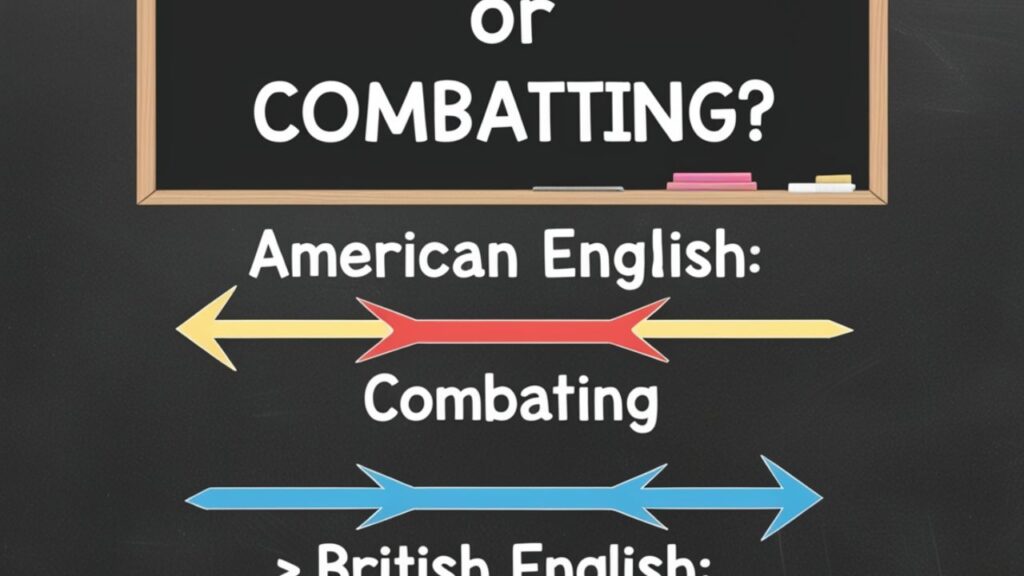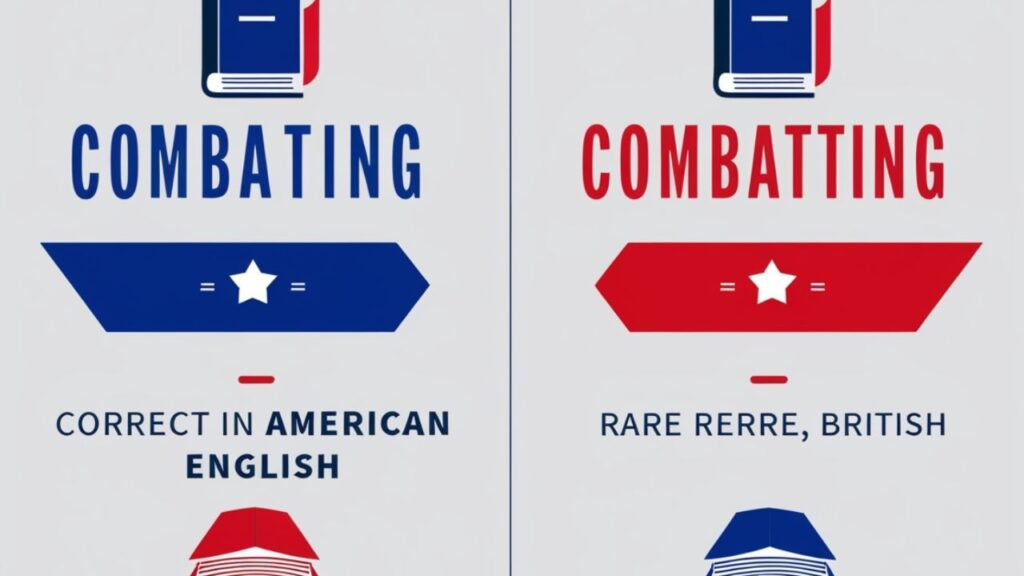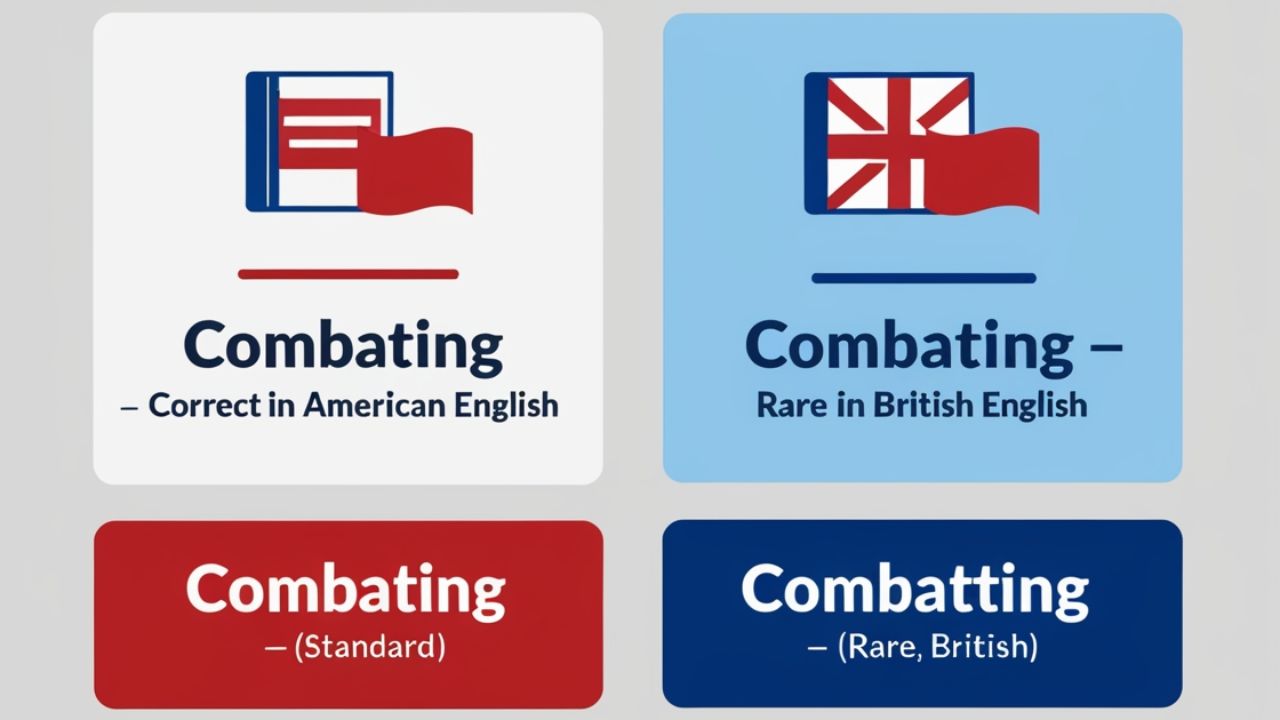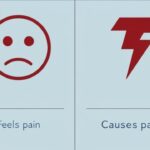The word combating is the right spelling in American English. Writers use it when they talk about fighting problems like disease, crime, or misinformation. The spelling combatting is seen in some British texts, but it is less common and not standard.
English spelling rules help explain this choice. In words like combat, the stress falls on the first part. That means we do not need to double the final “t” when adding -ing. So, “combating” is the proper form in most writing situations.
When writing for school, work, or even online, it is safer to use combating. This spelling is widely accepted by teachers, editors, and style guides. Using the correct form builds trust and shows careful attention to language rules.
The Root Word “Combat”: A Quick Breakdown
The word combat comes from old Latin and French languages. People used it to talk about battles and fights. Today, it can mean a real fight or a strong effort against problems like illness, crime, or harmful information.
Writers use combat as both a noun and a verb. As a noun, it means a fight or struggle. As a verb, it means to fight against something. This root helps build words like “combating,” which are common in modern English.
American English vs. British English: Who Spells It How?
| Variation | Region | Spelling Used |
| Combating | U.S. |  Standard Standard |
| Combatting | U.K. & Others |  Accepted but less common Accepted but less common |
- In American English, combating is the correct and common spelling used in schools, books, and newspapers.
- In British English, writers sometimes use combatting, though combating also appears often in formal texts.
- For global writing, combating is the safer choice because most readers understand it clearly.
Spelling Rules: When to Double the Consonant
- If a short word ends with vowel + consonant, the last consonant is doubled before adding -ing (run → running).
- In longer words, doubling happens when the stress falls on the last part (admit → admitting).
- Words like combat stress the first part, so the “t” is not doubled (combat → combating).
See also : Invision or Envision: Which Spelling Is Correct?
Grammar Spotlight: Present Participles and Gerunds

What They Are:
A present participle is a verb form that ends with “-ing.” It shows an action happening right now, like “I am running.” This form also works with helping verbs to explain actions that continue for some time.
A gerund looks the same but acts as a noun. It names an action, like “Running is fun.” Both forms come from verbs, but they play different roles in a sentence. This makes them useful in everyday writing and speaking.
- A present participle ends with “-ing” and shows an action happening now, like I am reading.
- A gerund also ends with “-ing” but acts like a noun, such as Reading is fun.
- Both forms look the same, yet they play different roles in a sentence.
Audience Awareness: Who Are You Writing For?
Audience awareness means thinking about the people who will read your words. Some readers use American English, while others use British English. Writers choose the spelling and style that match the readers so the message feels clear and correct.
Good audience awareness helps writing sound respectful and professional. A school paper, a work report, or an online post may need different spelling rules. Knowing the reader makes it easier to keep writing simple, clear, and consistent.
- Audience awareness means knowing who will read your writing and choosing words that fit them.
- American readers expect combating, while some British readers may accept combatting in their texts.
- Writers should stay consistent with one style so readers understand clearly and feel confident.
Real‑World Usage Examples
- Newspapers in the United States often use combating when writing about health or safety issues.
- British health reports sometimes use combatting, though combating also appears in many documents.
- In schools, teachers in America prefer combating as the correct form.
- Online articles about world problems mostly choose combating for global readers.
- Dictionaries and style guides show combating more often, while combatting is listed as less common.
Dictionary and Style Guide Verdicts
| Authority | Spelling | Notes |
| Merriam‑Webster | Combating | Does not list “combatting”  |
| Oxford English Dict. | Both | Notes “combating” as a variant |
| Cambridge | Both | Single‑t is most common, double‑t OK |
| AP Stylebook (U.S.) | Combating | One-time only |
| Chicago Manual of Style | Combating | One-time only |
Common Misconceptions and Mistakes
- Many people think combatting is always wrong, but it appears in some British English texts.
- Some writers believe both spellings change meaning, yet they mean the same thing.
- Spellcheck tools may not always show combatting as incorrect in British settings.
- Mixing both spellings in one paper makes the writing look messy and careless.
- Choosing the correct form once and using it everywhere keeps writing clear and professional.
See also : Gooned Meaning: Definition, Origins & Modern Uses
SEO, Clarity, and Consistency in Writing

Good SEO helps more people find your writing online. Clear spelling and simple words make the message easy to read. Search engines notice when text is neat, so correct choices bring better results and help readers trust the information.
Strong clarity and steady style keep writing professional. Using the same spelling in every place avoids confusion. A reader feels more confident when the text looks smooth, well-organized, and consistent. This habit improves both school work and online articles.
- Good SEO helps writing appear in search results so more people can find it.
- Clear spelling makes sentences easy to read and understand for every reader.
- Using the same spelling everywhere shows careful and professional work.
- Consistent writing builds trust because readers see neat and steady style.
- Setting spelling rules in documents saves time and avoids later mistakes.
Bonus: Spelling Battles in Other Words
- In American English, it is canceling, while in British English it is cancelling.
- Writers in the U.S. use traveling, but in the U.K. they write travelling.
- The word quarreling is common in America, while quarrelling appears in Britain.
- Short words often keep one consonant in American English and double it in British spelling.
- Knowing these patterns helps writers choose the right form for their readers.
Final Verdict: Which Should You Use?
- In American English, the correct spelling is always combating.
- In British English, combatting appears sometimes, but combating is still common.
- Both forms mean the same thing, only spelling changes.
- Writers should not mix the two spellings in one text.
- For global readers, combating is the safer and clearer choice.
A Deeper Dive for Grammar Enthusiasts
Why “combat” Doesn’t Follow Typical Doubling
- The word combat has stress on the first part, not the last.
- English doubling rules usually work when the stress is at the end.
- Because of this stress pattern, the final “t” does not double.
- Other words like format follow the same rule (format → formatting).
- This rule explains why we write combating instead of combatting.
When British English adds a Second “t”
- British English sometimes doubles consonants in two-syllable verbs.
- Words like format become formatting, showing this pattern clearly.
- The same idea leads to combatting in some British texts.
- This doubling is not a grammar rule, only a spelling choice.
- Most modern British writing still prefers combating for clarity.
Historical Roots
- The word combat comes from Latin combattere and French combattre.
- Early English writers sometimes used both combating and combatting.
- Famous authors like Charles Dickens showed the double-t form in old texts.
- Over time, spelling rules became simpler, favoring the single-t style.
- Today, combating is standard, while combatting remains rare and regional.
Case Study: International Communications Department
- An NGO once used combatting in all its internal papers.
- Donors from the United States asked for the spelling combating instead.
- Editors changed every document to match this single style.
- The update improved search results and reduced spelling confusion.
- Using combating made reports faster to check and easier to share.
Final Tips for Writers
- Pick one spelling style, U.S. or U.K., and use it in every text.
- Keep a small style sheet to remember your choices for future writing.
- Use tools like Grammarly or spellcheck to stay consistent.
- Teach your team or classmates the right spelling for smoother work.
- Clear spelling habits save time and make writing look professional.
TL;DR Summary
- Combating is the standard spelling in American English.
- Combatting appears in British English but is less common.
- Both words mean the same thing, only spelling is different.
- Writers should choose one form and stay consistent.
- For worldwide readers, combating is the clearest and safest choice.
Conclusion
The word combating is the spelling most guides accept, while the form with two “t” is rare. Writers who follow simple rules make their work clear. Choosing the right spelling keeps writing smooth, neat, and easy for all readers.
Strong writing also needs steady style and careful choices. With good spelling habits, every piece of text becomes more professional. Using the correct form shows respect for language and helps readers understand the message without any doubt or confusion.
FAQS
Is combatting or combating correct?
The correct spelling is combating in American English. Combatting appears in some British texts, but it’s rare and not widely accepted.
What is the meaning of combating?
Combating means fighting against something harmful, such as disease, crime, or misinformation, using effort, action, or ideas to stop or control it.
What is an example of combating?
An example is: The government is combating climate change through policies, renewable energy projects, and awareness programs to protect the environment.
How is ‘combat’ pronounced in English?
The word combat is pronounced with stress on the first syllable: COM-bat. It sounds like “KOM-bat” when spoken in American English.

Join Bibcia on a journey to master English grammar. Discover easy lessons, writing tips, and practical examples designed to make learning grammar simple and effective.










